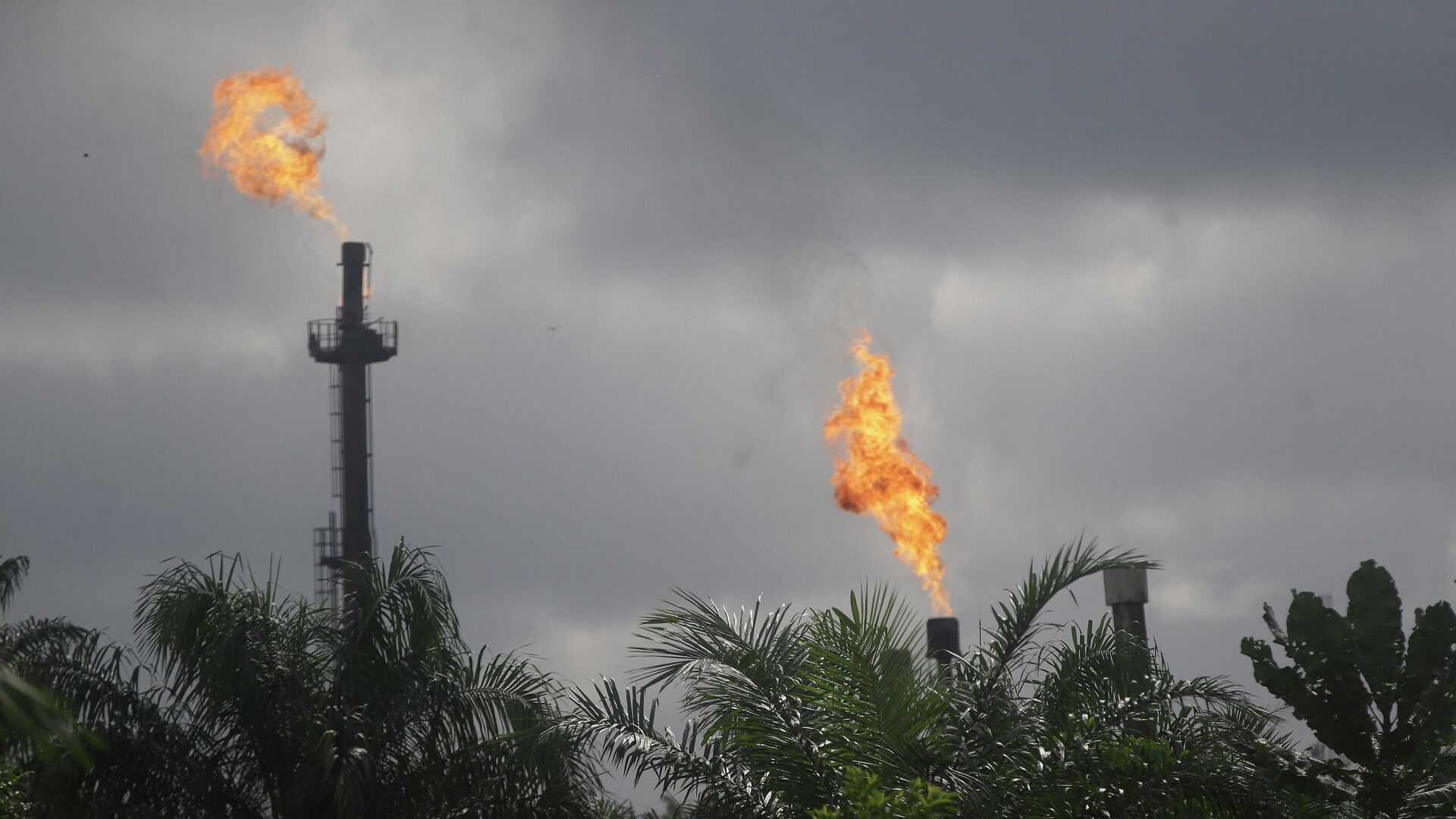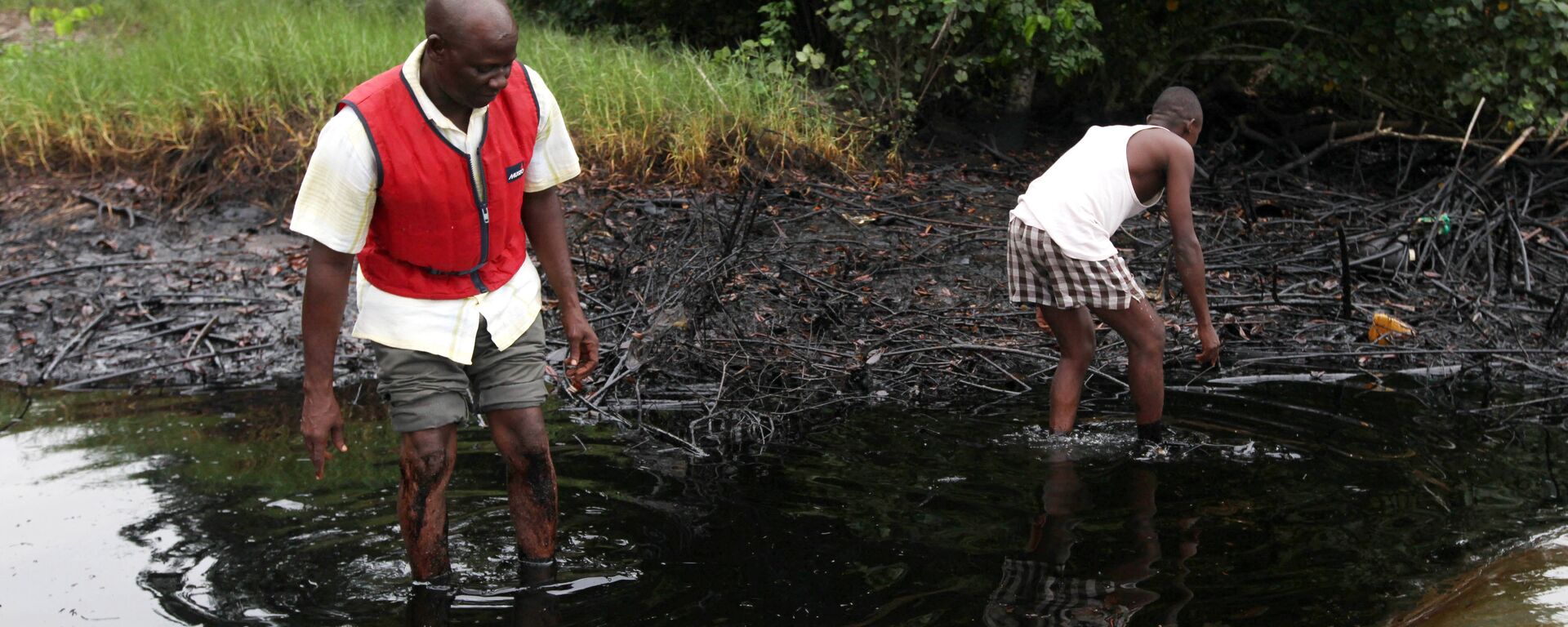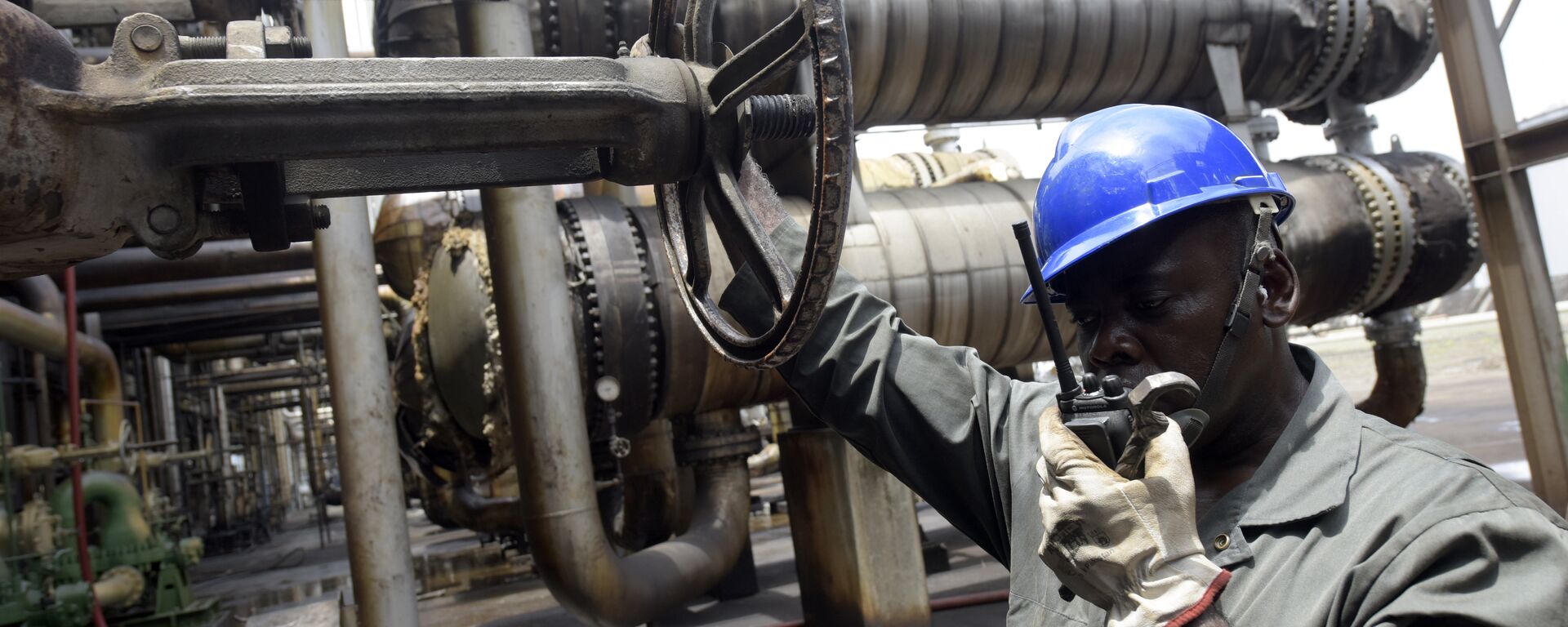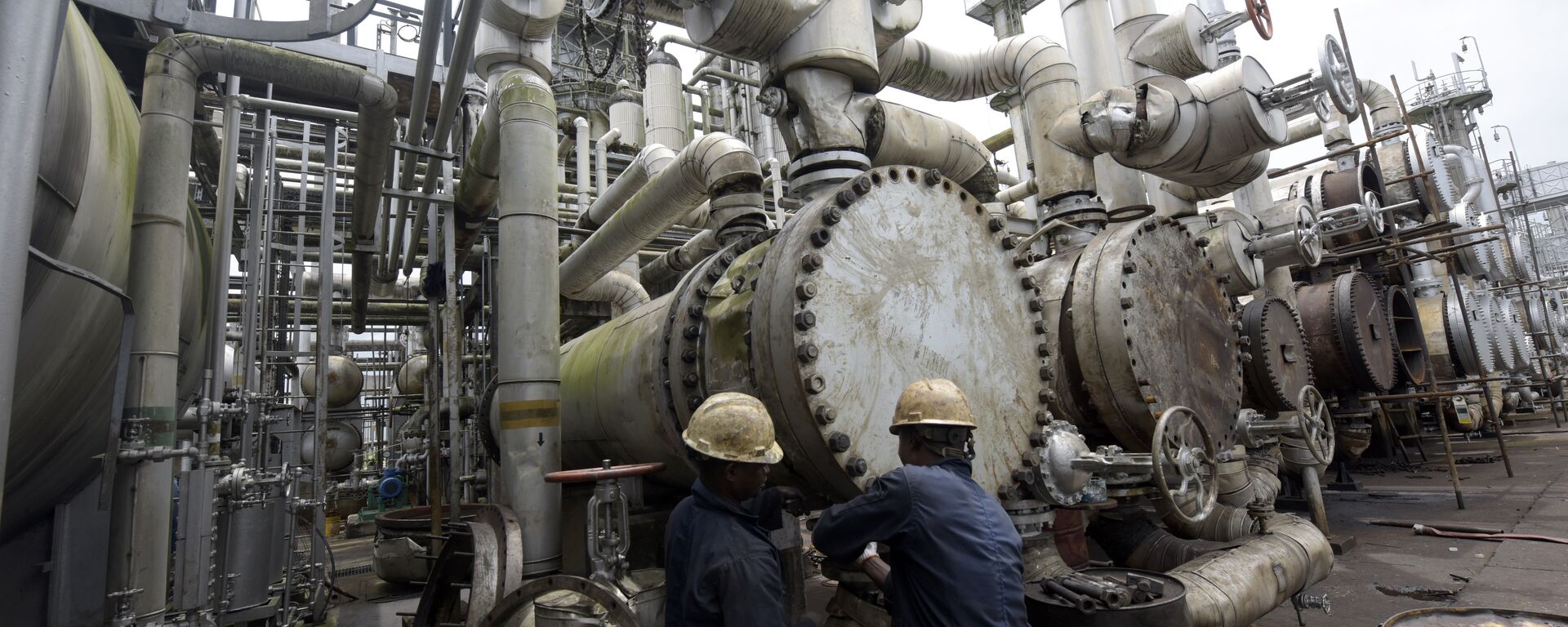Scholars: West's Deforestation Red Flag is Another Attempt to Derail Africa's Energy Rise
17:12 GMT 21.10.2022 (Updated: 17:15 GMT 12.04.2023)

© AP Photo / Sunday Alamba
Subscribe
A consortium of European investment firms have raised $200 million to fight deforestation in Africa, warning that the increasing consumption of charcoal by the continent's nations is putting pressure on forests, as per Bloomberg. According to the media outlet, the use of wood-based fuel jumped 90% in Africa to 34.9 million tons in 2020.
"When African people are suffering immensely from energy poverty, lack of clean drinking water and starvation, the last thing on their minds would be deforestation and the supply of sustainable wood products to the West. African people need to cut trees from the forests to provide themselves with warmth in winter and fuel for cooking," said Dr. Mamdouh G. Salameh, an international oil economist and a global energy expert.
"Therefore, funds raised by western investment firms to combat deforestation in sub-Saharan Africa is a luxury, if not immature, offering to African people who don’t know how to stave off starvation or keep themselves warm in the cold weather," he explained.
According to Bloomberg, Africa loses four million hectares of forests yearly. This comes as the hydrocarbon-rich continent suffers from acute energy poverty because many African countries neither have the infrastructure to benefit from their vast resources and distribute energy, nor do they have funds to create the much-needed refineries, oil and gas pipelines, and electrical power stations. To date, at least 600 million people in Africa lack access to electricity, according to the International Energy Agency (IEA), despite the abundant energy resources on the continent.
"Therefore such western green initiatives are futile since they don’t stop Africa’s poor people from cutting trees to use it as a fuel for cooking and for keeping themselves warm," emphasized Salameh. "If they truly want to help Africa, western governments, investors and philanthropists should invest in a better future for Africa by helping develop Africa’s vast oil and reserves to eliminate severe energy poverty in the continent and also invest in building infrastructures and wealth-creating projects."
The counter-deforestation initiative promoted by European investors is yet another "populist" move aimed at "deceiv[ing] the people of the region that the West is concerned about them, about their environment, about their survival while in the real sense the West is actually the problem," according to Botti Isaac, a Nigerian social commentator and political analyst.
What the West has actually done so far is move billions of barrels of crude out of the shores of Africa and continue to fuel conflicts and crises in the African states to divert their attention from the real issues, argued the Nigerian commentator.
Apart from the deforestation, western environmentalists and politicians are warning investors against funding the continent's long-term gas and oil projects as the world, according to them, has to completely get rid of fossil fuels by 2050. However, Africa accounted for only 3.8% of the world’s emissions of carbon dioxide (CO2) in 2020, which is actually the smallest share of all regions.
"The West puts up the decoy of trying to help Africa combat climate change impact by making it look as if deforestation is the major cause of climate change and global warming, but in actual fact, they are the culprit of the climate change crisis," said Isaac. "They are the big industrialists emitting carbon into the air, polluting the atmosphere. So rather than paying for their crimes by increasing investment to promote clean energy sources, they are coming up with a reforestation initiative thereby wanting to use African countries as a buffer for their carbon emission."
Still, western hypocrisy extends further: the unfolding energy crisis in Europe forced some EU member states to turn to "dirty" fuels such as coal and even firewood which came in sharp contrast to their green energy and environmentalist agenda, noted Olufola Wusu, a Lagos-based oil and gas expert and a policy consultant who was part of the team that helped review Nigeria’s National Gas Policy 2016 for the Ministry of Petroleum Resources.
"Bloomberg recently reported that firewood demand is surging as Europeans return to the world's oldest fuel," said Wusu. "With Germany stocking up on firewood, and some cities in Poland burning trash to generate heat, it seems the sudden clamor for wood in Europe just goes to show that a robust energy mix is needed to meet the world’s growing energy demands at any given point in time, particularly when a cold winter approaches."
Whether one likes it or not, fossil fuels will remain part of the energy mix used to power the world for decades to come, according to the Nigerian energy expert. He pointed out that the "self-inflicted" energy crisis in Europe and the US has exposed their obvious need in gas and oil. Wusu particularly referred to the EU's urgent requests for African LNG products and Washington's pleas to the Saudis to delay oil production cuts and step up the production of petroleum, the more the better.
African Nations Should Embark on Path of Independent Development
The West has good reasons to try to hinder the development of the African energy sector as the prosperity of the continent means the loss of the Global North's influence over it, according to Botti Isaac.
"[Western countries] recognize that if African nations develop their own energy sources, their dependence or reliance on [the West] will be limited and hence their break from the imperialist grips," highlighted Isaac. "It also means that African nations will reduce undue foreign access to its natural resources in order to meet its domestic needs."
On the other hand, the West's reforestation and other green initiatives are used to contain Africa's energy development by promoting carbon offsetting, he noted. "Also, it is cheaper to invest in tree planting than to use the carbon credit to invest in renewable or other forms of energy to meet the needs of their former colonies," Isaac remarked.
While such policies serve the West’s interests lucratively, it comes at the expense of Africa’s national interests, echoed Salameh. He has drawn attention to the fact that western countries "only offer investments and technological know-how to the continent in exchange for receiving the lion's share of the regional hydrocarbon wealth."
Despite populist green slogans, "the West doesn’t care whether African countries are experiencing severe energy poverty or not as long as it gets its hands on these reserves," according to Salameh.
"Nigeria and other African countries need to evolve their own brand of foreign policy engagements, that enables them to better negotiate terms and conditions that are in no way inimical to their growth and progress, while leveraging on their rapidly growing youthful population to achieve more meaningful results," emphasized Wusu.
African nations should take a cue from their energy-producing peers in Europe and aggressively monetize their gas reserves, he insisted. To illustrate his point, the expert drew parallels between Nigeria and Norway, two natural gas-producing nations.
"The proposed Nigerian budget for 2023, contains a budget deficit of -10.78 trillion, target inflation of 17.16% and projected growth rate of 3.75%, the total budget is N20.51 trillion [$46.97 billion]," he said. "Meanwhile, Norway will earn about $109 billion selling oil and gas to fuel starved Europe. Consider converting the $109 billion into Naira, this will fund Nigeria's budget in 2023 and leave quite a bit of cash for a rainy day."
Salameh believes that the development of independent energy infrastructure by Africans is a step in the right direction. For that, the continent needs proper allies and investors, according to the international oil expert.
"In a nutshell, African countries need to tap the goodwill and generosity of countries with no imperialistic history, who have genuine interest and desire in helping the poor countries of Africa overcome their energy poverty and who also have the financial and technical resources to develop Africa’s energy resources. For this, I nominate without hesitation two countries which fit the bill admirably: Russia and China," he concluded.




